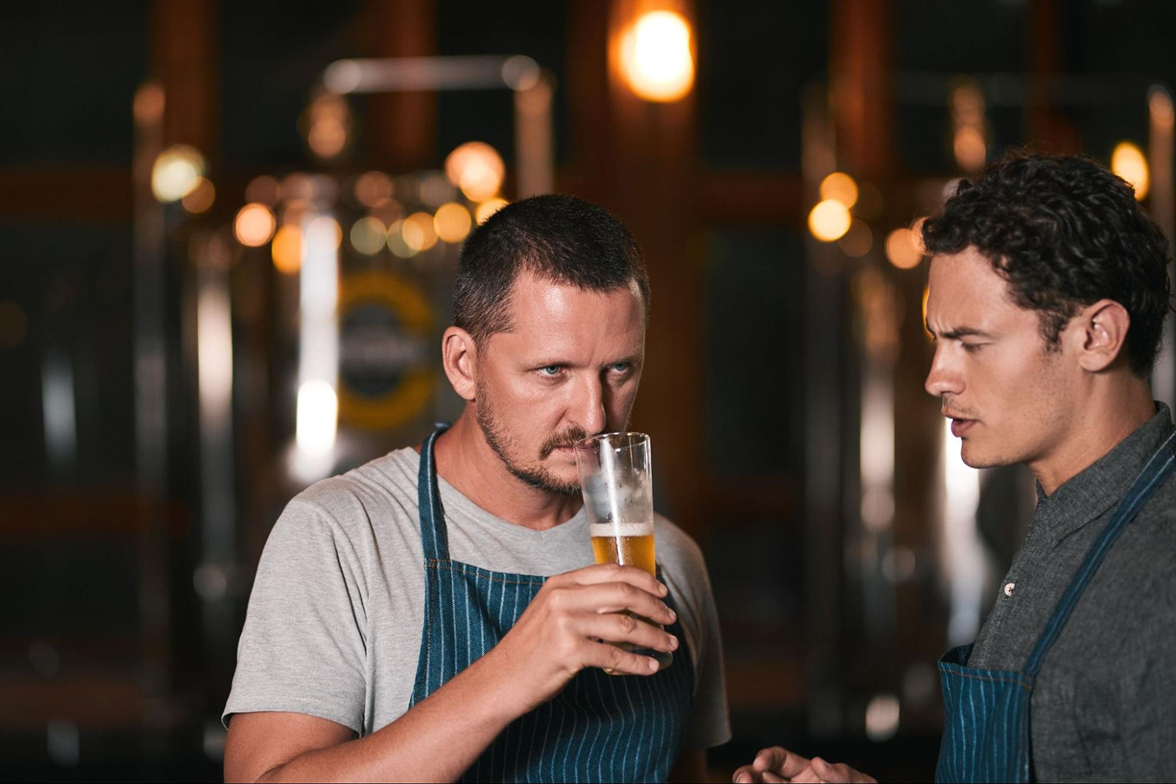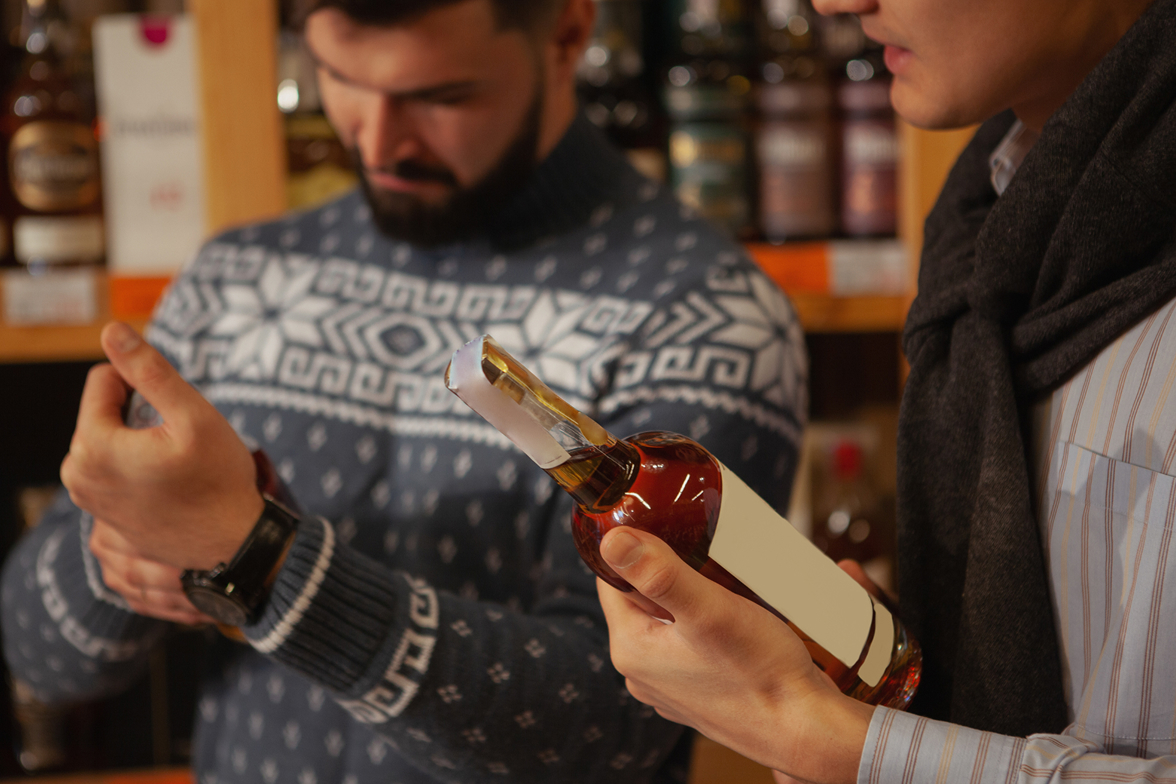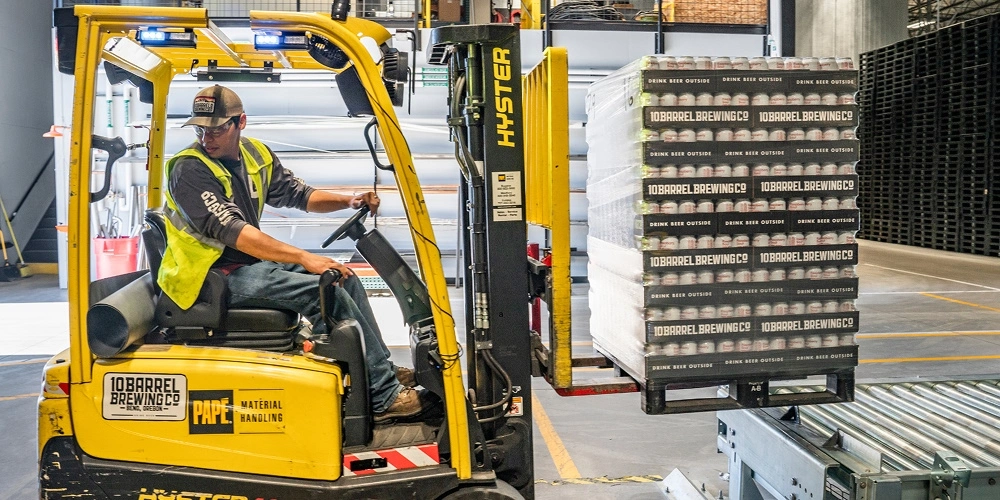Table of Contents

From Idea to Shelf: The Journey of a Beverage Startup
Published Date: 29 January 2025
Last Updated: January 2026
Launching a beverage startup requires a commercially viable beverage product and a strong business plan. Our guide helps your company navigate the beverage industry. Learn how to scale your beverage business with expert logistics and shipping.
How does a brilliant beverage startup idea become the next big thing on store shelves? It requires careful business planning and masterful execution. In this post, let us take a closer look at what starting a beverage business involves, from product ideation to beverage distribution.
Keep reading to discover our step-by-step roadmap for transforming your beverage vision into a market-ready beverage product, the right way.
How to Start a Beverage Company: Vital Steps
Alcoholic beverages are increasingly popular, making it a lucrative business investment. To bring your beverage vision to life, we recommend you follow the steps below.
Step 1: Concept Creation
Every successful beverage startup begins with a strong concept. To craft a winning idea, ask yourself:
- What gap does my beverage fill? Identify a unique problem or need your product will address, such as offering a small-batch beer with a never-before-seen infused flavor.
- Who is my target audience? Understand your ideal customers, their preferences, habits, and pain points. What do they drink? Where do they drink it? Why would they choose your beverage?
- What is my unique selling proposition (USP)? Whether premium ingredients, sustainable practices, or creative packaging, your beverage brand’s USP should set you apart from competitors.
Combine these strategic insights into a comprehensive business plan designed to attract investors and secure the necessary capital for your beverage startup.
| Pro Tip: When creating and selling any drink product, always stay on top of market trends and consumer preferences. Exploring functional beverage reports and innovative ideas from related markets can provide you with crucial insights. |
Step 2: Product Development
Turning a beverage startup concept into a tangible, commercially viable beverage product requires careful experimentation and refinement, as the food and beverage industry is a complex one.
Whether you’re developing alcoholic beverages, health drinks like kombucha, or specialty coffee, your beverage must be unique. Every successful business in the food and beverage space relies on a rigorous manufacturing process.
Here’s how to approach this critical stage for your beverage startup:
- Recipe testing: Collaborate closely with industry experts, such as food scientists or beverage manufacturers, to refine your beverage formula and ensure consistency.
- Ingredient sourcing: Prioritize high-quality, ethically sourced ingredients for your beverage business and determine how they fit into your production needs.
- Quality Control: Ensure all food ingredients are delivered fresh to your beverage company to maintain the integrity of the finished product.
- Small-batch testing: Conduct small-scale production to gather feedback from your target audience before launching a full-scale beverage startup.

Source: Shutterstock
Step 3: Branding and Identity
Your brand is the face of your beverage startup and a critical factor in attracting customers. Here’s how to create a compelling brand identity:
- Define your mission: Clearly articulate your values and purpose. For example, are you committed to sustainability, innovation, or premium quality?
- Design eye-catching packaging: Invest in professional designs that reflect your brand’s personality and appeal to your target audience. Packaging design is often the first thing customers notice.
- Share your story: Tell the target audience your journey and the inspiration behind your beverage. Authenticity creates a connection with consumers.
Step 4: Legal and Regulatory Compliance
Compliance with legal and regulatory standards is essential to avoid costly setbacks. Three key steps include:
- Registering your business: Choose the right legal structure, such as an LLC or corporation, and register your company.
- Labeling and safety standards: Ensure your labels meet FDA and local requirements, including ingredient lists and nutritional information.
- Trademarks: Register your brand name, logo, and product designs as trademarks to protect them from unauthorized use.
Step 5: Production and Scaling
Once your beverage product is finalized, it’s time to move into formal production. It’s vital to team up with a beverage manufacturer or co-packer that can handle your specific production needs. You will also need reliable packaging suppliers that can bring your packaging design to reality.
On that note, implement a solid manufacturing process to keep quality consistent across all batches for your beverage company. Food safety and quality should be the top priority for any beverage business looking to scale.
| Growth for a beverage startup might start slowly, but having a clear plan for scaling up food and beverage production means you’ll be ready to handle increased demand from customers. |
Step 6: Distribution Strategy
Bringing your finished beverage product to the market requires a well-planned distribution strategy to ensure it reaches its target audience. Consider these channels to grow your beverage business:
- E-Commerce: Direct-to-consumer (DTC) sales via your website or subscription service allow your beverage startup to build direct relationships with consumers. This provides a broader market reach for your beverage and a seamless shopping experience.
- Retailers: Increase visibility by placing your beverage product in grocery stores, specialty food shops, and with local retailers.
- Physical stores: Collaborate with bars and cafes to feature your beverage in curated environments where customers can enjoy the taste and ambiance.
- Logistics partners: A successful business in the beverage industry relies on expert beverage managed logistics to handle the distribution of alcoholic beverages or health drinks.

Source: Canva
Step 7: Marketing and Promotion
Once your beverage is distributed, you can raise brand awareness and drive sales for your beverage startup with strategic marketing. These plans should cater to your target audience, ensuring you reach the right consumers likely to buy your beverage product.
Consider these tips for your start-up:
- Social media: Use platforms like Instagram or TikTok to connect with your beverage startup audience and showcase your brand personality.
- Collaborations: Partner with influencers who align with your beverage values to create user-generated content that boosts your drink brand.
- Events and tastings: Large-scale beverage conferences and food festivals are excellent ways for a beverage startup to increase visibility.
- Storytelling: Share the idea behind your brand to create an authentic connection with customers interested in your beverage vision.
Beverage Startup Challenges and How to Overcome Them
Launching a beverage startup involves many hurdles. Here’s how to find your way through them:
Funding
Many start-up beverage companies face funding problems early on. To secure capital, consider a loan or check out government grants for your beverage business. You should also look for investors or crowdfunding platforms that can sponsor your early beverage productions.
Competition
The beverage industry has steep competition. Your beverage company will have to compete with thousands of other brands, and your success will depend on differentiating your beverage startup and emphasizing your unique selling proposition.
Additionally, ensure you have a high-quality product and partner with a reliable beverage shipping partner to handle the complexities of transporting alcoholic beverages and logistics. The right partnership can help your beverage business thrive.
Learn more: In-House vs Outsource Logistics
FAQs About Launching Your Beverage Startup
How much does it cost to start a beverage company?
Starting a beverage business requires significant investment for a commercially viable recipe, packaging design, and initial production batches. Costs vary based on your beverage product and whether you use a co-packer.
Is it hard to get into the beverage industry?
The beverage industry is highly competitive. A successful business requires navigating complex logistics, managing regulatory requirements for alcoholic beverages, and finding the right distributors to reach your target audience across North America.
Is starting a beverage company profitable?
A beverage startup can be highly profitable if it differentiates its brand and effectively manages shipping costs. Using efficient beverage managed logistics and high-quality packaging helps protect margins as your beverage company scales.
How do I find a reliable beverage manufacturer?
Look for a beverage manufacturer that understands your specific production needs, whether for health drinks or spirits. Ensure they have a proven process for delivering a high-quality finished product to your customers.
Key Takeaways
- Target the right audience: A successful beverage startup must focus its messaging and service model on the specific needs of its target market.
- Prioritize commercial viability: Ensure your beverage product is commercially viable by working with food scientists to perfect the manufacturing process.
- Manage the logistics red tape: Partner with experts like Brew Movers to handle the complex logistics and regulatory headaches of transporting alcoholic beverages.
- Leverage specialized shipping: Use white-glove shipping services and proprietary systems like Pallet Parka to maintain the cold chain for your beverage business.
- Scale for future growth: Build a clear business plan that accounts for production needs and uses reliable packaging suppliers to meet rising demand.
- Define your USP: Every beverage startup needs a unique selling proposition, such as premium ingredients or sustainable packaging design, to stand out in the beverage industry.
Brew Movers: The Beverage Start-Up Efficiency Partner
The journey of a beverage startup is filled with challenges. However, with the right strategies and partners, you can turn your idea into a successful business. Brew Movers is ready to help you take the first step with unparalleled beverage startup support.
With our white-glove shipping services, we have helped thousands of other budding breweries and beverage brands drive their business to success.
Contact us today to discover how we can support your beverage startup with industry-leading logistics, packaging, and beverage shipping solutions.
Adrian Gram
CEO & Co-FounderA strong skill set to perform analytical assessments, translate them into strategic plans and then build a comprehensive Go-To-Market roadmap that drives execution and delivers results. Versed in empowering and influencing key stakeholders from executive level leadership to field teams, building wide spread adoption that is focused on a common goal, The Customer, Growth and Profits.




